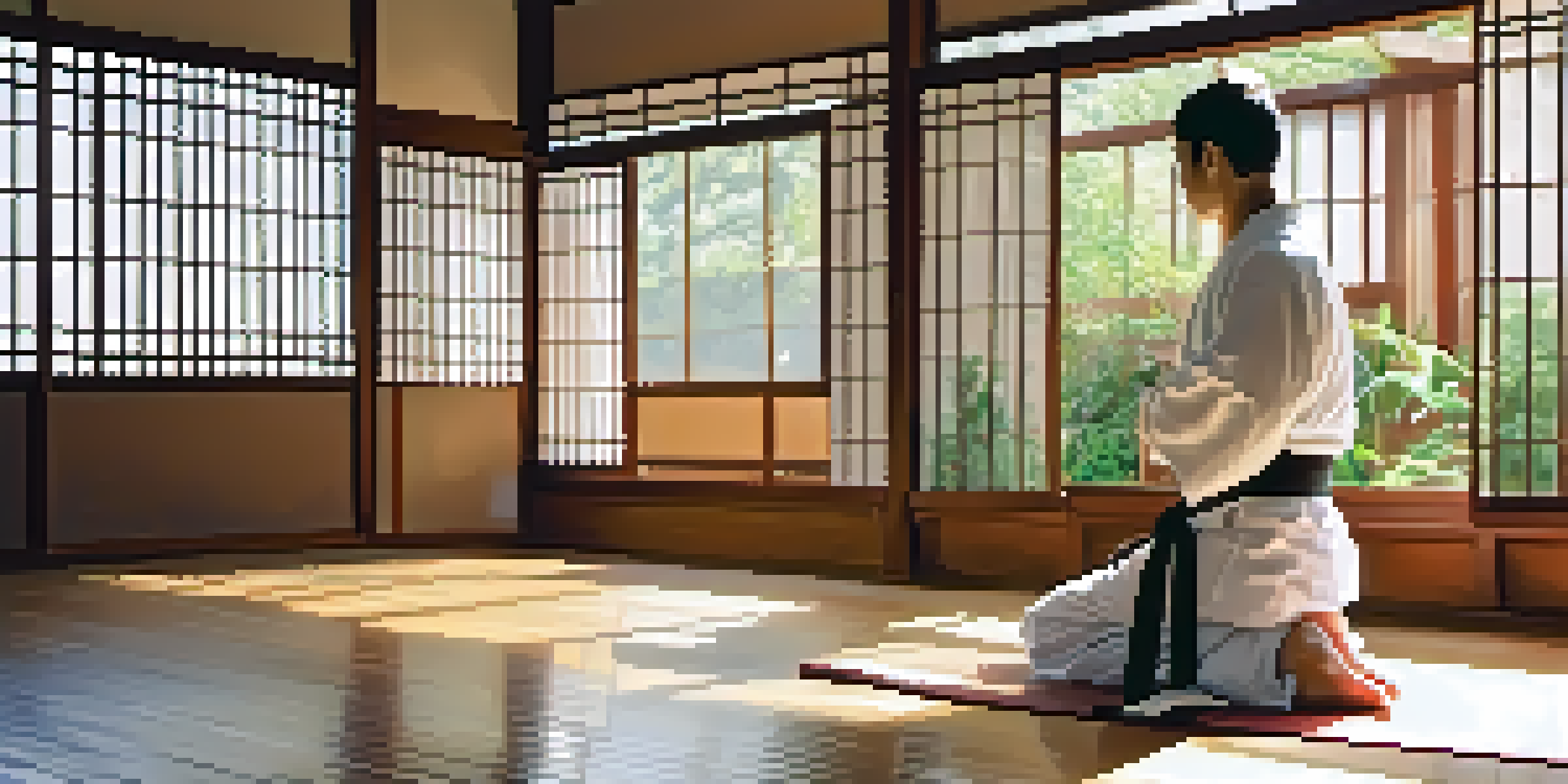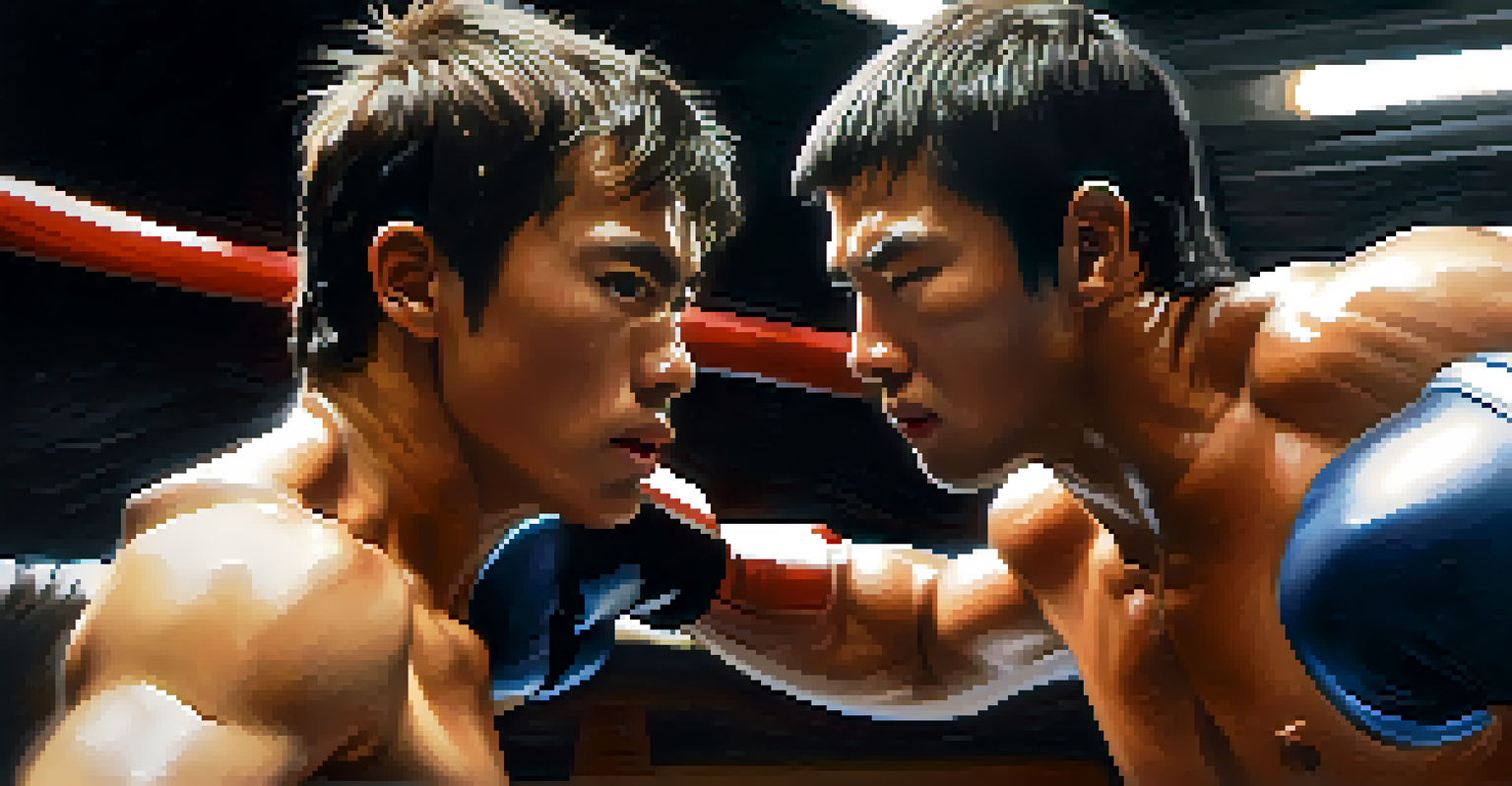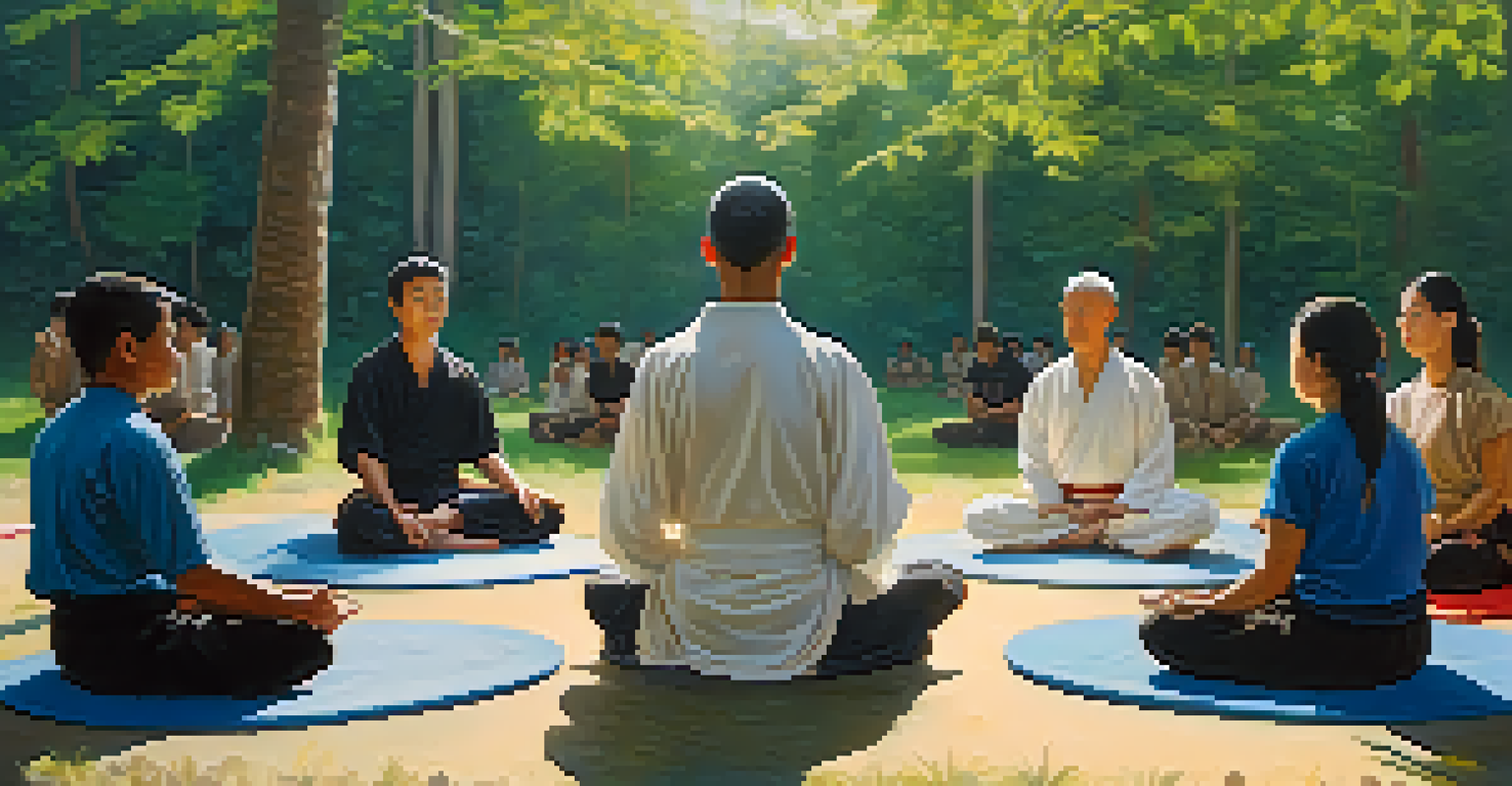Integrating Mindfulness into Martial Arts for Enhanced Focus

Understanding Mindfulness and Its Benefits
Mindfulness is the practice of being fully present and engaged in the moment. It encourages individuals to observe their thoughts and feelings without judgment. This awareness can lead to improved concentration, emotional regulation, and stress reduction, all of which are vital in martial arts.
Mindfulness isn’t difficult, we just need to remember to do it.
By integrating mindfulness into martial arts training, practitioners can enhance their focus during practice and competition. Imagine a martial artist, calm and centered, able to react swiftly and decisively in a sparring match. This heightened awareness can mean the difference between victory and defeat.
Moreover, the benefits of mindfulness extend beyond the dojo. Practicing mindfulness helps individuals manage anxiety and improve overall mental health, which can enhance their performance both on and off the mat. It's a holistic approach that nurtures the mind and body.
The Connection Between Mindfulness and Martial Arts
Martial arts, at its core, is not just about physical prowess; it's also a mental discipline. The focus required during training mirrors the essence of mindfulness, making them natural companions. Both practices emphasize awareness, control, and intention, forming a solid foundation for a martial artist's journey.

In many martial arts traditions, such as Tai Chi or Aikido, mindfulness is already interwoven into the training. Practitioners learn to move with intention, aware of their breath and body movements. This connection fosters a deeper understanding of techniques and improves performance.
Mindfulness Enhances Martial Arts
Incorporating mindfulness into martial arts training improves focus, emotional regulation, and stress management.
Moreover, incorporating mindfulness can help martial artists deal with the pressures of competition. By focusing on the present moment rather than worrying about outcomes, they can perform at their best when it matters most. It’s this synergy that makes mindfulness a powerful tool in martial arts.
Practical Mindfulness Techniques for Martial Artists
There are several mindfulness techniques that martial artists can easily incorporate into their training. Simple practices like deep breathing can help calm the mind and refocus energy before a session. Taking a moment to breathe deeply allows practitioners to center themselves and prepare for the physical demands ahead.
The mind is everything. What you think you become.
Another effective method is visualization, where martial artists picture themselves executing techniques flawlessly. This mental rehearsal builds confidence and sharpens focus, as the mind often doesn't differentiate between real and imagined experiences. The more vivid the visualization, the more effective it can be.
Lastly, practicing meditation can significantly enhance a martial artist's focus. Just a few minutes of sitting quietly, observing thoughts and sensations, can improve overall mental clarity and emotional resilience. The key is consistency; making these practices a regular part of training can yield remarkable results.
Incorporating Mindfulness into Training Routines
To effectively integrate mindfulness into martial arts training, it's essential to establish a routine. Start each session with a few moments dedicated to mindfulness, such as breathing exercises or a short meditation. This sets a calm tone and prepares the mind for focused practice.
Consider incorporating mindfulness into drills as well. For instance, encourage students to focus on their movements and breath while performing techniques. Remind them to be aware of their body and surroundings, fostering a deeper connection to their practice and enhancing their overall performance.
Mindfulness Supports Competition
Practicing mindfulness during sparring helps martial artists stay present, improving their decision-making and performance under pressure.
Additionally, post-training reflection is a powerful practice. After each session, take time to assess how mindfulness influenced your focus and performance. This reflection can provide insights into areas for improvement and reinforce the benefits of mindfulness in martial arts.
The Role of Mindfulness in Sparring and Competition
Sparring and competition can often be high-pressure situations that challenge even the most experienced martial artists. Mindfulness helps to manage this pressure by keeping practitioners grounded in the present moment. Instead of worrying about winning or losing, they can focus on executing their techniques effectively.
During sparring, mindfulness encourages practitioners to observe their opponent's movements without judgment. This heightened awareness allows for quicker reactions and better decision-making, creating a more fluid and responsive fighting style. It's about being present, rather than getting caught up in the anxiety of competition.
Additionally, mindfulness can help with post-competition analysis. Instead of dwelling on mistakes, martial artists can reflect on their performance with a balanced mindset, focusing on what they can learn for the future. This growth-oriented perspective builds resilience and fosters continuous improvement.
Building a Mindful Community in Martial Arts
Creating a mindful community within martial arts can enhance the benefits for all practitioners. Encourage open discussions about mindfulness during training sessions, allowing students to share their experiences and insights. This collaborative environment fosters a sense of belonging and support.
Group mindfulness practices, like meditation or breathing exercises, can also strengthen community bonds. When practitioners engage in mindfulness together, it cultivates a shared commitment to focus and presence. This collective effort reinforces the importance of mindfulness in martial arts culture.
Build a Mindful Martial Arts Community
Creating a supportive environment for mindfulness practices fosters a deeper connection among practitioners and enhances overall training.
Moreover, instructors can lead by example, integrating mindfulness into their teaching methods. By modeling mindful behaviors, instructors inspire students to adopt these practices themselves, creating a ripple effect that enhances the overall training atmosphere.
The Long-Term Benefits of Mindfulness in Martial Arts
Integrating mindfulness into martial arts training not only enhances focus but also promotes long-term personal growth. Practitioners often report increased self-awareness, emotional intelligence, and improved relationships both in and out of the dojo. These benefits extend beyond the mat, enriching their everyday lives.
Furthermore, consistent mindfulness practice can lead to greater resilience in the face of challenges. Whether dealing with setbacks in training or life, a mindful approach encourages individuals to respond thoughtfully rather than react impulsively. This skill is invaluable, as it cultivates a mindset geared towards growth and adaptability.

Ultimately, the journey of combining mindfulness with martial arts is about more than just sharpening skills; it's about nurturing a holistic approach to personal development. Practitioners who embrace this integration often find themselves more focused, balanced, and equipped to face life's challenges with grace.